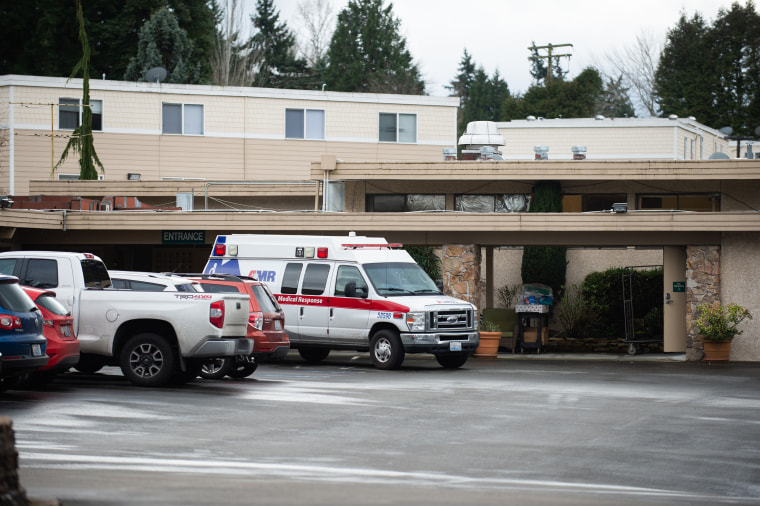Following the deaths of five residents at the LifeCare Center nursing home in Washington State due to coronavirus, care centers across the country are taking additional precautions to prevent the virus from spreading to their residents.
In Florida, four people have confirmed cases of coronavirus, but none in nursing homes at this time. However, the Florida Health Care Association has taken additional measures to prevent an outbreak in their facilities.
“Our members are focused on minimizing the potential risks by boosting preventive actions and utilizing fundamental infection control protocols, including the use of eye protection, standard hand hygiene procedures, contact and airborne precautions, and other key practices within their centers,” they told NBC News.
Nursing homes and assisted living facilities are also preparing by cleaning commonly touched surfaces more frequently as well as using additional disinfectant around the facilities among residents and employees.
The Centers for Medicare and Medicaid Services put out new guidance on Wednesday that allows health care facilities to screen resident’s family members who may be sick or have traveled to areas with known cases of coronavirus.
The guidance also addresses how facilities should move residents who present with symptoms to isolation or other facilities including hospitals.
Janet Snipes, the executive director of the Holly Heights Nursing Center in Denver, Colorado said the center may choose to restrict visitors based on their answers to the travel and respiratory symptoms screens but that their staff is “being prepared to offer alternatives to visits including Skype calls, phone calls, and emails.”
In a media call hosted by the American Health Care Association, Dr. David Gifford, the Chief Medical Officer for the Center for Health Policy Evaluation said if someone presents with the symptoms of coronavirus such as a cough, fever, or sore throat, the facility should be taking the following actions: “putting them in contact isolation, ensuring all staff and visitors who interact with them are wearing gowns, masks, and/ or gloves and washing their hands, and keeping the resident from circulating around and infecting other visitors.”
According to Dr. Gifford, assisted living and nursing homes are also required to have infection prevention control plans as well as an infection preventionist on board. In addition, all facilities have emergency preparedness plans that “should be more than adequate for dealing with a national pandemic.”
Snipes said her center has “developed an emergency preparedness plan and infection control plan that is centered around COVID 19 and is similar to the influenza plan in place.”
The plan focuses on staff prevention, visitor and supplier screenings and resident preparations.
The California Department of Veterans Affairs who oversees 8 nursing homes across the state is relying on their protocols used to deal with the flu as well to handle a possible outbreak of coronavirus.
Currently there are no cases reported in any of their homes, but there are more than 50 cases confirmed in the state.
“We will continue to work closely with state and federal health officials to monitor this virus and, in the unlikely event that they are needed, we have an ample supply of N95 masks available at all our homes,” they told NBC News.

